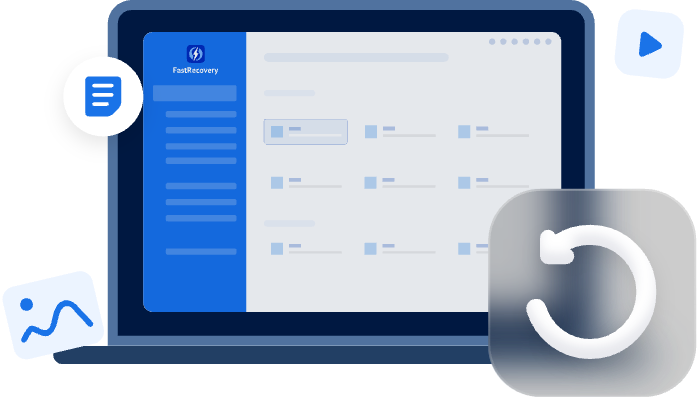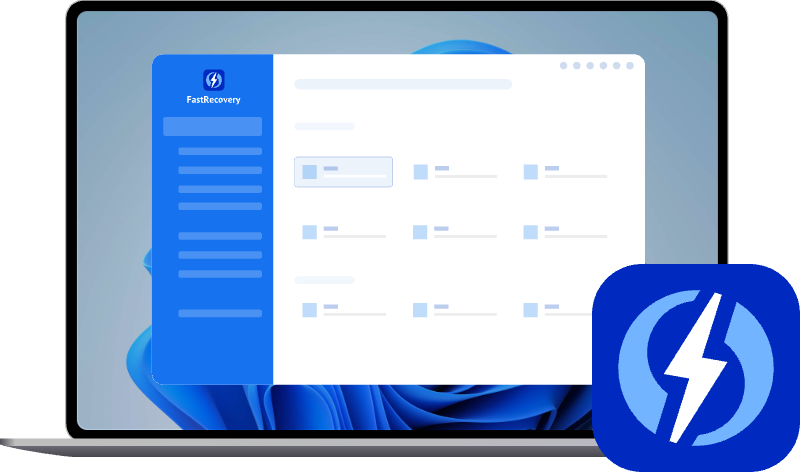[Free] How to Recover Deleted Files from Flash Drive Without Software
How to recover deleted files from flash drive without software? You can try built-in features, like "Previous Versions" and "CMD" on Windows. In addition, Windows File Recovery and its alternative is also effective.
Is it possible to recover deleted files from USB flash drives without software?
“Hello! I have deleted some files from my flash drive by mistake. I have checked the Recycle Bin but no clue. Please help me recover the files? Is there any way to recover deleted files from a flash drive without software? Thanks.”
- Question from CCM
It’s common that data loss happens on a USB flash drive due to kinds of reasons, like mistaken deletion, USB flash drive formatting, USB flash drive corruption, and virus attacks. Those deleted or lost files couldn’t be found in the Recycle Bin.
Fortunately, it is possible to recover deleted files from USB flash drivers, even without software. With the right solutions, you could find back your deleted or lost files from flash drives. It’s easy to find back if you have backup files. Read the following to learn how to recover deleted files from flash drives without software.
How to recover deleted files from flash drive without software
You can recover deleted files from USB flash drive by attrib command or restore to the previous version.
▶ Method 1. Using command prompt to recover deleted files from flash drive
Command Prompt is a Windows built-in application that is available in all Windows versions. If your files are not deleted but are missing from your USB flash drive or pen drives, you could use CMD to recover hidden files on USB.
Step 1: Plug in your USB flash drive to your computer.
Step 2: Click the Search bar and type “CMD” into the search box. Select “Run as administrator” when you right-click Command Prompt.
Step 3: Input the following commands one by one.
- Type chkdsk G: /f and press Enter. (Replace the letter "G" with the drive letter of your USB flash drive)
- Input attrib -h -r -s G:*.* /s /d. (Replace G with the drive letter of your USB drive)
Wait for the process to finish. And then you could check to see if your hidden flash drive files have been visible.
▶ Method 2. Recover deleted files from flash drives with Previous Versions
Windows provides an efficient way to recover deleted files from the USB drive, which is Previous Versions.
Please make sure you have File History set up to automatically back up files before using this method.
The Previous Versions backup feature in Windows allows you to recover deleted files from a flash drive without using software. By right-clicking on your USB flash drive and selecting Properties, you can access the Previous Versions tab.
Step 1. Connect your USB flash drive to the computer where you have backed up your files in the flash drive with File History.
Step 2. Right-click the folder where your files were saved before deletion. Select “Restore previous versions” from the menu.
Step 3. Select the previous version according to the time, and then click “Restore”.
How to use Windows File Recovery to recover deleted files from USB drive
Windows File Recovery was released by Microsoft in 2020. It’s a free app by uses command lines without any graphical user interface. Users could input accordingly command patterns for different Windows File Systems and scenarios. Here is the format of Windows File Recovery:
winfr source-drive: destination-drive: [/mode] [/switches]
It has two basic modes to help you recover deleted files. There are kinds of switches to control what kinds of files to recover and specify locations & file types. You can follow the steps below and see the examples of commands. To find more advanced syntax, you could go to Microsoft support.
Step 1. Check the file system of your hard drive. Right-click the partition and select “Properties”.
Step 2. According to the circumstances use Regular or Extensive mode.
|
File system |
Circumstances |
Recommended mode |
|
NTFS |
Deleted recently |
Regular |
|
NTFS |
Deleted a while ago |
Extensive |
|
NTFS |
After formatting a disk |
Extensive |
|
NTFS |
A corrupted disk |
Extensive |
|
FAT and exFAT |
Any |
Extensive |
Step 3. There are some common switches to use.
- /n: Scans for a specific file by using a file name, file path, file type, or wildcards.
- /segment: Segment mode, recovery option for NTFS drives using file record segments. /signature: Signature mode, recovery option for all file system types using file headers.
/u: Recover the undeleted files, like from the Recycle bin.
Examples:
1. If you want to recover your “Test” folder from your C: drive to the recovery folder on E: drive, you can input the following command. Remember the backslash (\) at the end of the folder.
Winfr C: E: /regular /n \Users\\Test\
2. If you want to recover PDF and Word documents from your C: drive to the recovery folder on E: drive, the command should be:
Winfr C: E: /regular /n *.pdf /n *.docx
│ Free alternative to Windows File Recovery alternative
It’s easy to see how difficult to use Windows File Recovery for common users from the above tutorial about Windows File Recovery. Although it’s a free tool, there are kinds of errors when inputting commands. Luckily, there is a perfect Windows File Recovery alternative. You could use a professional data recovery program - AOMEI FastRecovery, to restore deleted or lost files from hard drives with simple clicks. You can download and install it on your computer.
Step 1. Launch AOMEI FastRecovery on your computer. Find the USB drive and click Scan.
Step 2. The program runs the scanning process quickly to find missing files in the flash drive. During scanning, you can recover any file you want.
Step 3. Select the file or the folder that you want to recover and click "Recover files".
Bonus tip-making regular backup
To sum up, when data loss occurs, if you want to recover deleted files from a flash drive without software, data recovery would be easy if there are backup files. After you delete files accidentally, please stop using the storage device immediately to increase the success rate of data recovery. Therefore, making a regular backup is very necessary to keep your data safe.
You could save your data in different storage devices or cloud storage. Here it’s recommended to use a professional backup tool - AOMEI Backupper. You could back up, restore, and clone your Windows systems, files, and applications with simple operations.


